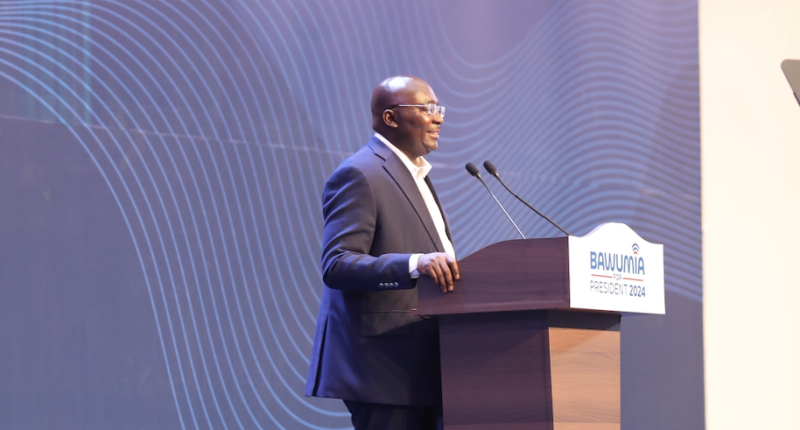The Vice President, Dr. Mahamudu Bawumia, has announced plans to abolish the e-levy, emissions tax, and other levies as part of proposed tax reforms aimed at boosting government revenue and fostering a cashless society if he is elected President.
Presenting his government’s policy statement and priorities to Ghanaians in Accra on Wednesday, February 7, 2024, Dr. Bawumia highlighted the importance of eliminating the e-levy tax, also known as the tax on mobile money transactions, to advance his administration’s goal of promoting digital financial transactions.
Expressing concern over significant revenue losses estimated at $24 billion or 13% of GDP due to many individuals and businesses operating outside the tax system, Dr. Bawumia outlined his reform agenda, which includes abolishing taxes such as the emissions tax and tax on betting to streamline the tax regime and enhance revenue generation.
“The current tax system, in place since independence, has proven ineffective,” Dr. Bawumia remarked. “It is overly complex and burdensome for individuals and businesses, leading to widespread non-compliance and evasion.”
“To improve government revenue, we need to modernize and reorient the Ghana Revenue Authority (GRA) to broaden the tax base,” he continued.
Dr. Bawumia emphasized the need to strike a balance between revenue collection and supporting business growth, highlighting the burden placed on GRA staff to monitor existing taxpayers and the negative impact of excessive audits on business operations.
“We estimate that approximately 13% of GDP or $24 billion in revenue was not collected in 2023 due to non-compliance,” Dr. Bawumia stated. “Even collecting a fraction of this amount annually would have a significant impact on public finances.”
To encourage tax compliance, Dr. Bawumia proposed incentives for filing tax returns, even for those with zero tax liability, as part of efforts to promote a culture of tax compliance and accountability.
Furthermore, Dr. Bawumia pledged to abolish the proposed 15% VAT on electricity tariffs if it remains on the books by January 2025, signaling his commitment to relieving the tax burden on Ghanaians.
He said: “With the policy measures implemented thus far, we have outperformed the IMF fiscal deficit target of 5% of GDP by attaining a fiscal deficit of 4.2% in 2023. The new policies that I am proposing to implement in 2025 will give us the fiscal space to eliminate some taxes such as the VAT on electricity (if still on the books), the emissions tax and the betting tax without compromising our deficit target”.
Source:graphic.com.gh





